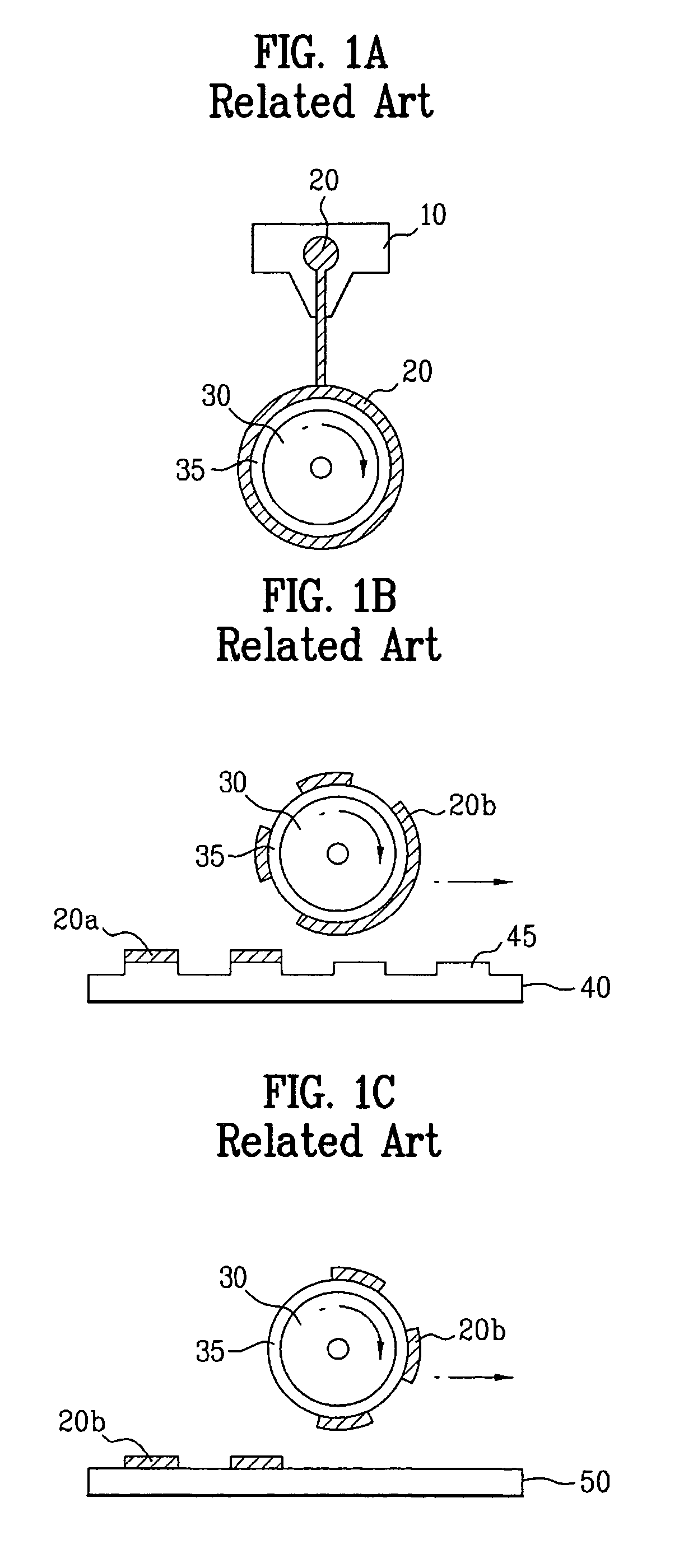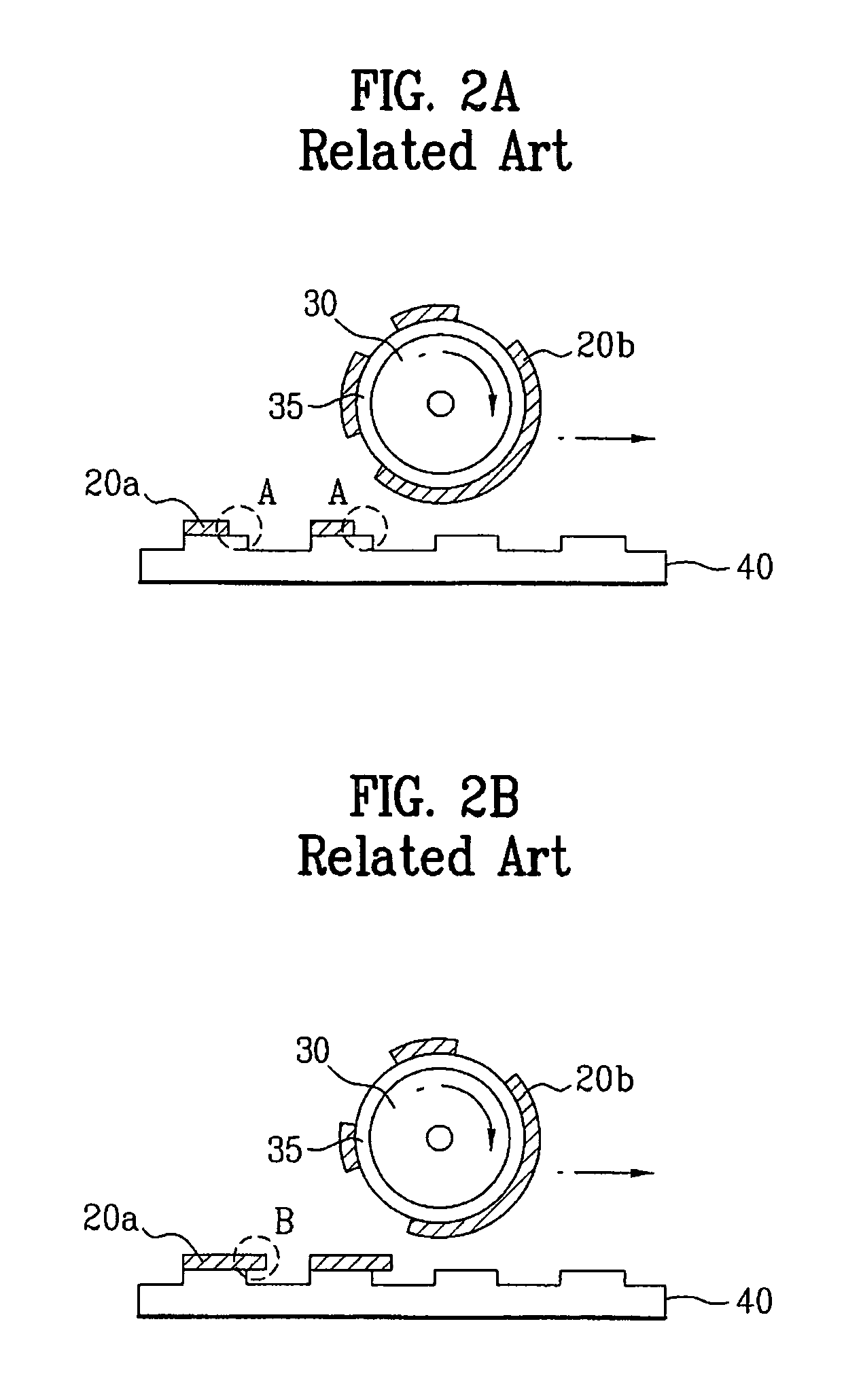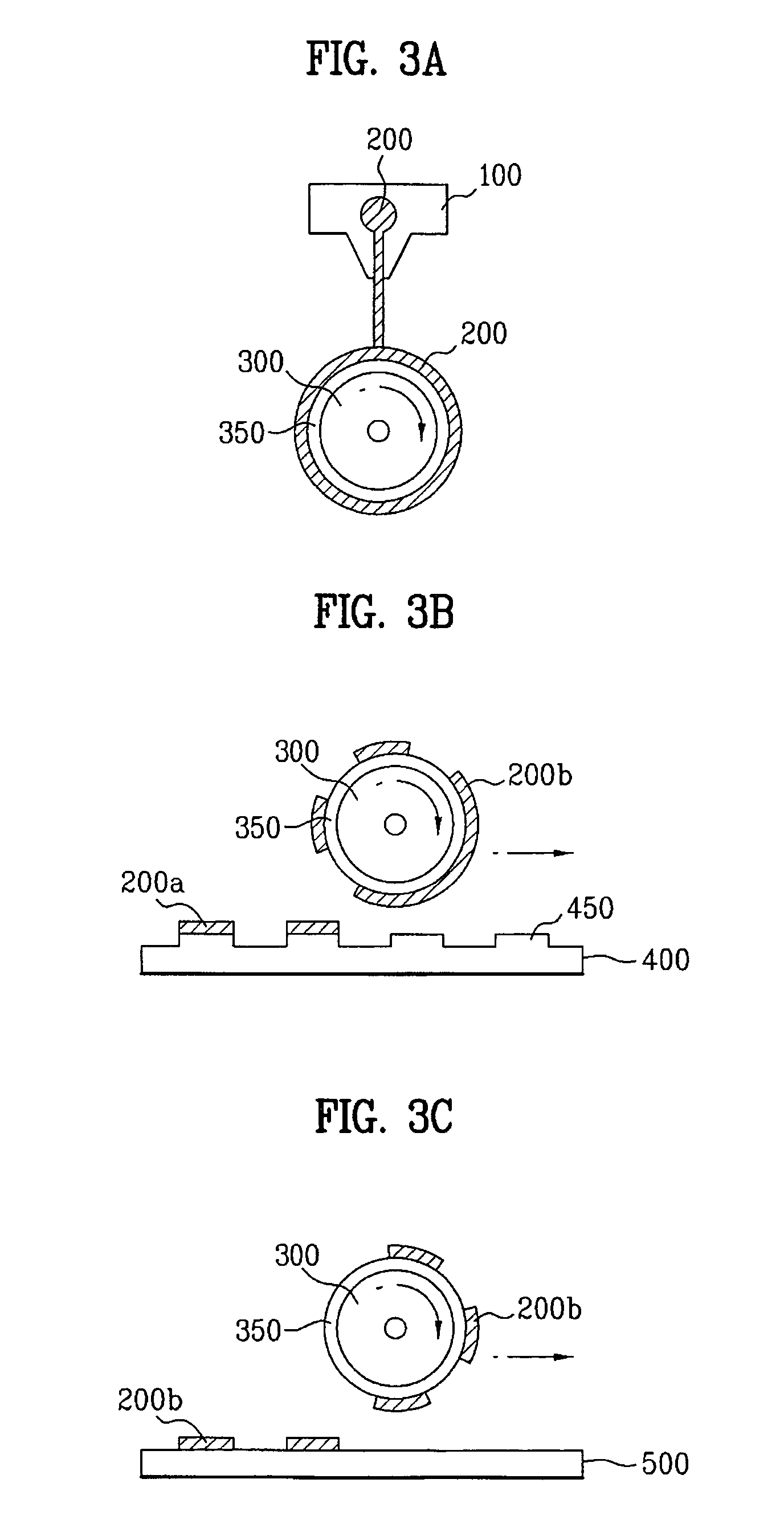Solvent for printing, pattern composition for printing comprising the solvent, and patterning method using the composition
a solvent and printing technology, applied in the direction of photosensitive materials, instruments, photomechanical equipment, etc., can solve the problems of increased fabrication costs, complicated processing procedures and long processing time, and inaccurate control of application and transfer steps
- Summary
- Abstract
- Description
- Claims
- Application Information
AI Technical Summary
Benefits of technology
Problems solved by technology
Method used
Image
Examples
example 1
[0105]60 parts by weight of acetone as a first solvent and 40 parts by weight of PGMEA as a second solvent were mixed together to prepare a solvent for printing.
[0106]20 parts by weight of a pigment, 5 parts by weight of a dispersant (polycarboxylic acid) and 10 parts by weight of a binder (Formula 1) were mixed with 80 parts by weight of the solvent composition to prepare a pattern composition for printing.
[0107]The pattern composition for printing was applied to the blanket 350 of the printing roll 300 in accordance with FIG. 3a. FIG. 6a is a photograph of the applied pattern composition for printing.
[0108]A pattern was formed on the substrate 500 in accordance with FIGS. 3b and 3c. The pattern formation was performed about one second after the pattern composition for printing was applied to the blanket 350 of the printing roll 300. A photograph of the pattern thus formed is shown in FIG. 7a.
PUM
| Property | Measurement | Unit |
|---|---|---|
| contact angle | aaaaa | aaaaa |
| contact angle | aaaaa | aaaaa |
| boiling point | aaaaa | aaaaa |
Abstract
Description
Claims
Application Information
 Login to View More
Login to View More - R&D
- Intellectual Property
- Life Sciences
- Materials
- Tech Scout
- Unparalleled Data Quality
- Higher Quality Content
- 60% Fewer Hallucinations
Browse by: Latest US Patents, China's latest patents, Technical Efficacy Thesaurus, Application Domain, Technology Topic, Popular Technical Reports.
© 2025 PatSnap. All rights reserved.Legal|Privacy policy|Modern Slavery Act Transparency Statement|Sitemap|About US| Contact US: help@patsnap.com



